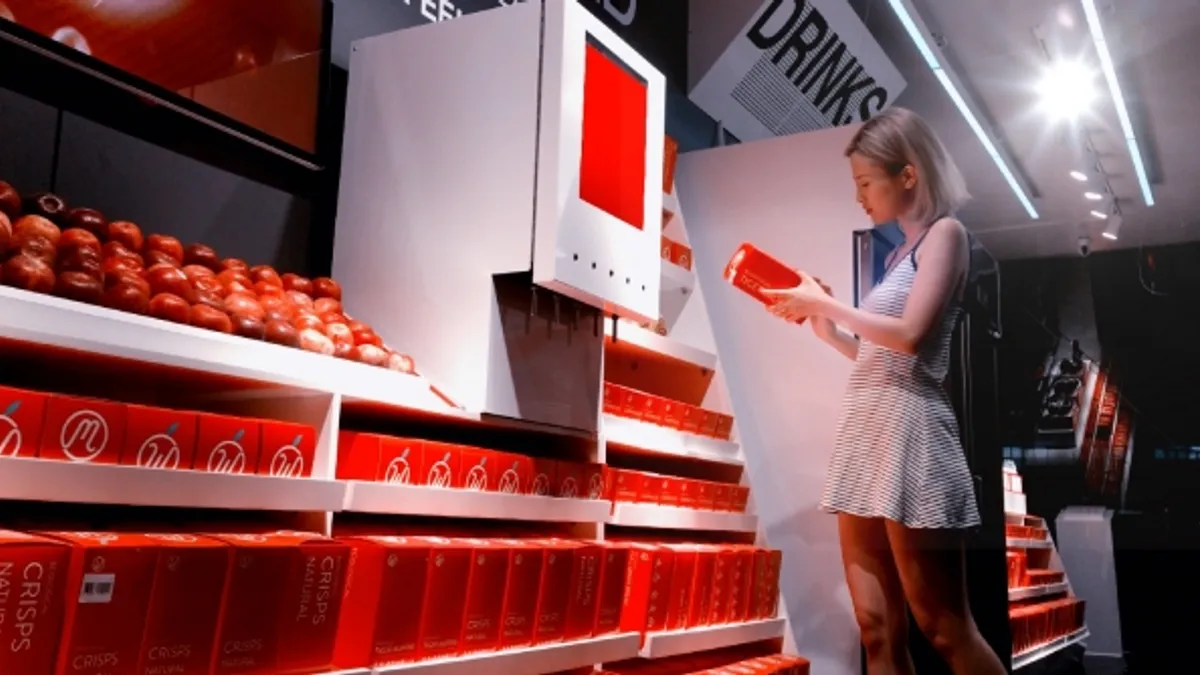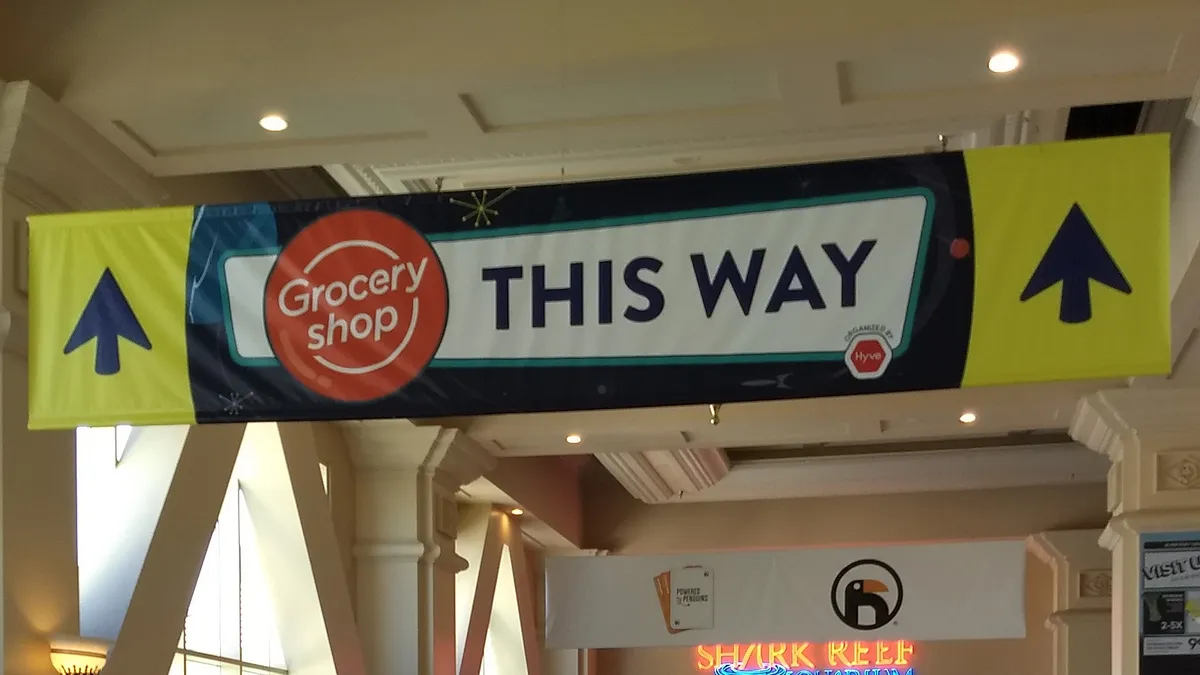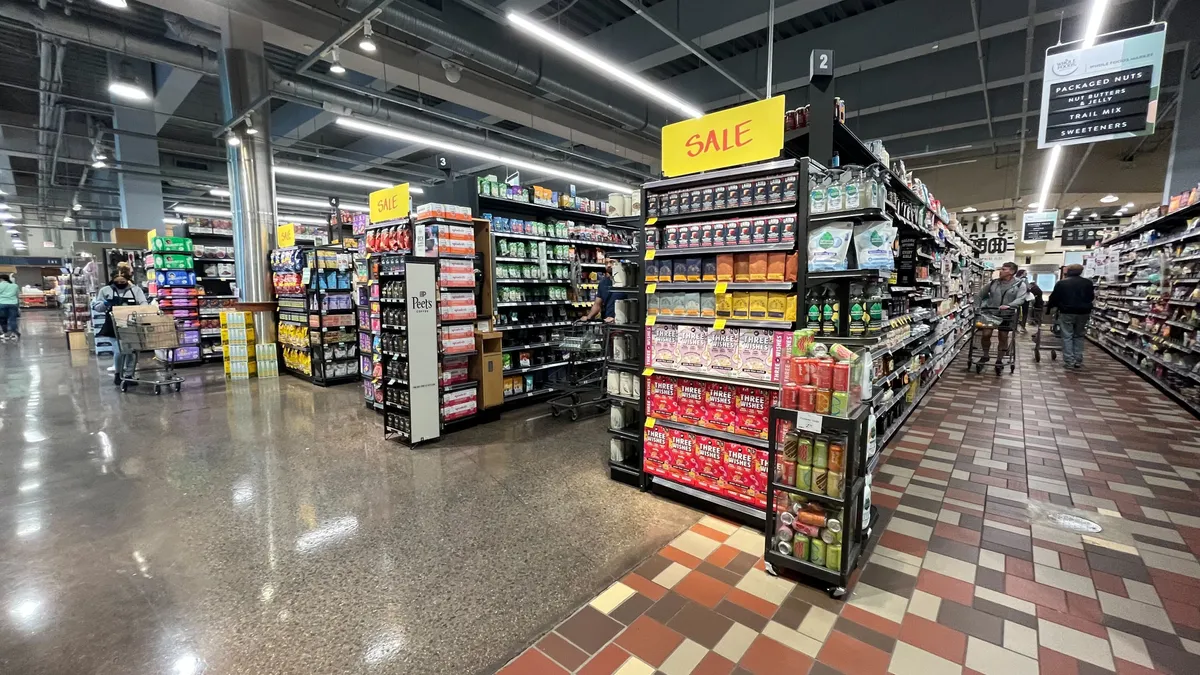Dive Brief:
- Moby Mart, an automated, self-driving mini grocery store is currently being tested in Shanghai, according to Mashable.
- The market, which is about the size of a small bus, carries an assortment of groceries, snacks and meals. Customers can scan products and pay using their phone or through a smart cart that automatically tracks and totals selections. When it needs to restock, the unit drives itself to a distribution center or to another nearby Moby Mart.
- The market is currently stationary, but the development team is working on its self-driving technology and hopes to eventually enable it to drive to customers upon request.
Dive Insight:
Is the Moby Mart the future of grocery retail? Probably not. The unit seems like a magnet for shoplifters, its replenishment model sounds inefficient and its drive-to-customer promise seems like a money-loser.
As a snapshot of the current pressures and initiatives shaping grocery retail, however, the Moby Mart is quite informative. Indeed, the market embodies many of the major trends shaping the industry, from on-the-go convenience to faster checkout and a smaller footprint. In a delightful nod to the importance of home delivery, the unit features two small drones attached to the top that will collect orders and fly off to nearby homes.
Grocers are working on these same innovations in interesting, if decidedly less-advanced, ways. Many have installed systems to speed up their checkout lanes. Sam’s Club has a “Scan & Go” app that allows customers to skip the checkout line, while Hy-Vee is currently trying a front-end lighting system that directs customers to the shortest lines. These aren’t anything like the hologram artificial intelligence cashier and scanning technology the Moby Mart features, but they’re examples of the advancements that are making incremental improvements to the shopping experience.
Likewise, grocers are bringing orders to consumers through curbside pickup and home delivery. Both formats are struggling with efficiency and profitability, but they deliver a level of convenience that’s become crucial to gaining and retaining customers.
Retailers will continue to work out the kinks in these and other systems. In addition, innovations to perfect the last mile and offer a pain-free checkout, among other initiatives, will develop in ways that are hard to imagine. One thing retailers can be certain of, however, is that change is often slow and difficult. Amazon — the most tech-savvy company in retail — for example, is struggling to implement its checkout-free Go stores. And for all its promise, the Moby Mart is still years away from driving itself to customers.










